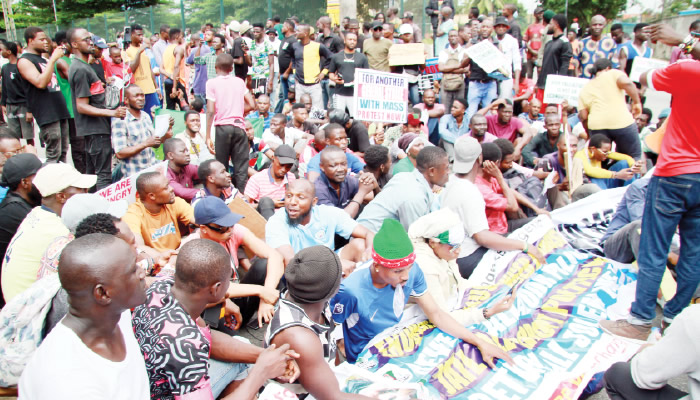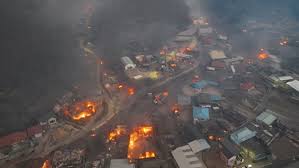Nigeria’s Slide into Lawlessness: Peter Obi Speaks Out
Peter Obi, former Anambra state governor, 2023 LP, presidential candidate has expressed deep concern over what he describes as a disturbing decline into lawlessness under President Bola Tinubu’s administration. Obi lambasted the government’s handling of a recent incident involving the alleged illegal demolition of a company property owned by his younger brother in Ikeja, Lagos State.
On his official X (formerly Twitter) account, Obi condemned the act, asserting that it reflects a troubling pattern of impunity and disregard for the rule of law across Nigeria. He warned that such actions not only threaten the nation’s economic prospects but also undermine social stability and the safety of its citizens.
“The whole situation screams of coordinated lawlessness and impunity,” Obi stated, emphasising that the ongoing trend could jeopardise Nigeria’s future. He lamented the country’s deteriorating human rights record, citing recent reports that highlight declining civil liberties, personal safety, and institutional protections.
For Obi, any society where the rule of law is overshadowed by lawlessness cannot possibly foster investor confidence or ensure the safety of its people. He warned that the government’s apparent failure to uphold civil rights and enforce legal protections sends a dangerous message both domestically and internationally.
He shared a personal account, saying, “I know what I’ve gone through as a person, being subjected to human rights abuse simply because I contested a legitimate presidential election. I can only imagine what small business owners, ordinary citizens, and vulnerable communities endure daily. If this level of lawlessness can happen to someone with a registered company and legitimate means, what hope do the rest of us have?”
Obi recounted a recent harrowing experience involving his brother: “This morning, I received a frantic call from my youngest brother, informing me that a group of people had invaded his company property in Ikeja and were demolishing the building. He had just arrived from Port Harcourt, only to be barred entry by security guards who claimed the demolition had started over the weekend. They told him they had a court judgment, but when I asked to see it, I was told it was issued against an unknown person or squatters. There was no demolition permit or court order—nothing legitimate about it.”
He continued, “How can you sue an unknown person? How can a court issue a judgment without proper identification or service? The entire process was a farce. Excavators arrived, and they began destroying a structure that had stood for over 15 years, without any tangible legal grounds. I asked who sent them, but they had no idea. When I demanded to speak with whoever authorised the demolition, I was told to go to a police station—yet no order was produced.”
Obi described the scene as emblematic of a broader climate of chaos: “The entire episode screamed of coordinated lawlessness and impunity. Our country has become truly lawless.”
He reflected on a recent conversation with a businessperson who told him they invest in Ghana, Senegal, and Benin Republic but avoid Nigeria altogether. Their reason was simple yet painful: “Nigeria is a lawless country. Until we have laws that truly protect our citizens, nobody will invest here.”
Concluding, Obi posed a stark question: “How did Nigeria reach this alarming level of lawlessness? What kind of nation are we building when the rights, lives, properties, and voices of our people are trampled upon every day?”
He reaffirmed his commitment to a better Nigeria—one where the rule of law is restored, where human rights are respected, and where every citizen’s life and property are protected. “I remain dedicated to the vision of Nigeria where justice, fairness, and care for the less privileged become the pillars of our society.”



